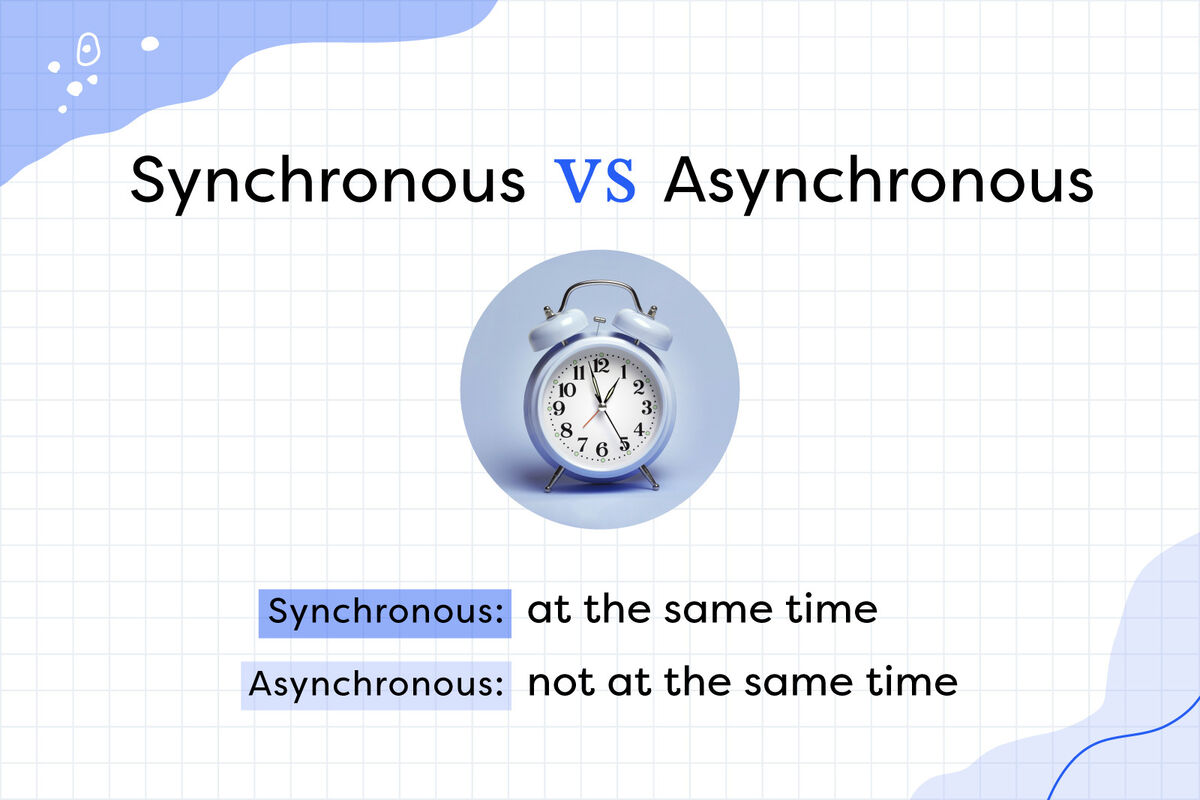
In the 20th century, most work happened in a synchronous manner. But now, in the increasingly virtual 21st century, work can be synchronous and asynchronous, making it easier to plan your work around your life (instead of the other way around). So what’s the big difference between synchronous vs. asynchronous — and why does it affect your work-life balance so much?
Synchronous: Happening At the Same Time
The word synchronous (SINK-kron-us) means that events are happening at the same time. It comes from the Greek roots syn (together) and khronos (time), as well as the Latin synchronus, and is a time-specific synonym of the word simultaneous.
Another way to think about the word synchronous is that it happens in real time, or live. It requires careful scheduling and communication with colleagues, and typically happens during work or school hours.
‘Synchronous’ In a Sentence
You can use the adjective synchronous any time two or more events occur at the same time. For example:
- Students in synchronous classes attend classes, either in person or online, at the same time as other students.
- Phone calls and in-person discussions are two synchronous ways to meet.
- Let’s plan a synchronous meeting so everyone can hear this information at once.
Asynchronous: Happening At Different Times
When you add the prefix a- (“not”) to synchronous, you get asynchronous — “not happening at the same time.” While most of your communication 20 years ago was synchronous, today the majority of it is probably asynchronous. When you text a friend in the morning and they text you back three hours later, that’s an asynchronous conversation.
‘Asynchronous’ In a Sentence
Use asynchronous (or the adverb asynchronously) to describe any events that happen at different times. For example:
- In asynchronous learning, students complete their work on their own schedules.
- My new manager prefers to work asynchronously, so he sends us emails at night for us to answer in the morning.
- Many companies use messaging apps so employees in different time zones can communicate asynchronously.
Other Timely Words To Know
Synchronous and asynchronous aren’t the only words that use the root chron- to indicate time. You’ll also find it in:
- anachronism - something that doesn’t belong in a particular time period
- chronic - happening over a period of time
- chronicle - a written account of a historical event
- chrononym - a specific period of time
- chronological - happening in order of time
- isochronal - taking up the same amount of time
- synchronize - occurring at the same time
Make Time For Improving Your Vocabulary
Are there a few more word pairs that you mix up from time to time? Memorize their differences once and for all with: